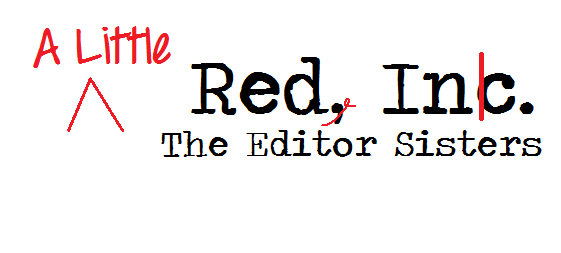Choosing a freelance editor can be daunting. So many choices, so many possibilities. And if we’re honest? Many people claiming to be editors wouldn’t be good for you OR your book. Anyone who spots typos easily can say they’re an editor.
So how do you find one to work with who will come alongside you, champion you and your writing, and help you make it your best?
Get comfortable asking questions. Here are four that will save you a lot of headache and heartache:
- Ask for recommendations.
- Ask for references.
- Ask for a sample.
- Ask for a contract.
First, ask for recommendations.
Do you have writer friends who rave about their fabulous editors? Who trust their editor completely? Ask them why. What is the working relationship like? How long has the editor been editing? Is there a fast turnaround? Are there mistakes in the completed manuscripts? What are the editors’ greatest strengths? Weaknesses? Who are the editor’s other clients? What are his or her credentials? Does he have professional licenses and degrees? Street cred? Does that matter to you? (It should.)
Don’t be afraid to ask other authors who write in your genre. Authors should find an editor who is comfortable editing what they write. First, there’s a unique skill set and nuances within each genre that can make a major difference. Second, don’t you want someone who’s passionate about what you write? Third, experience counts.
At some levels of editing, genre might not matter. But if you’re looking for a macro (big-picture, plotline, themes, character arcs) edit, genre experience is key. The difference between Science Fiction and bonnet fiction is usually vast. There’s Kerry Nietz, but he’s a worthy exception. At the very least, be sure that you’re working with a fiction editor if you write fiction and non-fiction if that’s your thing.
Look in the acknowledgements of your favorite books. Or use an author-editor “matchmaking” service like the Christian Editor Connection or the Editorial Freelancers Association. Those will help you get connected with serious editors who will bid on your work, and you’ll have the power to choose who’s the best fit. For free.
Once you’ve contacted the editors, ask them for references.
Many editors will have an endorsements page on their site.
A service like Kathy Ide’s Christian Editor Connection has vetted the editors in its database. Editors must pass tests for the various levels of editing and even some genre-specific tests.
Indie and hybrid authors, Susan Kaye Quinn’s Indie Author Survival Guide has a list of freelance editors, in addition to cover designers, formatters, and more. She’s even marked the ones she’s used and personally recommends.
And if you find an editor you think you’d like to work with but your schedules don’t line up, ask them for a recommendation. We editors network ourselves, and there are a few editors I’d be happy to recommend (and trust with my own work).
You can also ask for a sample.
Samples will give you an idea of the editor’s styles and strengths. Some editors (like me) will do a free three-page sample for any project over 25 pages. Some will ask you to pay up front, but why not pay for an hour’s worth of work and learn their editing style? Or pay for an edit on a piece of flash fiction. It’s short, but you’ll learn how the editor works, whether they add a little sugar with their constructive criticism, and whether they’ll definitely focus on the areas you think are the weakest.
The important thing is this: Editing is a professional relationship. As such, you need to be able to work well together, and the editor needs to sharpen you. They need to—not only tell you what isn’t working—but be able to suggest how to fix it. A sample edit shows whether the editor will truly improve your work.
Listen. Writing is art. You’ve heard of the fiction “rules.” There are many tried and true industry standards that do make writing stronger; there are also ways to bend and push those boundaries to powerful effect.
Lastly, ask the editor for a contract. Bare minimum, get a quote and clear expectations in writing.
Having things in writing will keep the relationship professional. Expectations for the timeline and the level of editing are clear. If you’re hiring someone to finish the work by August 30th, and they take until October with no communication or explanation, you’ll have proof that you were wronged. There are people out there masquerading as editors who will take your money and never send you anything. (This is another reason a word-of-mouth recommendation is a wonderful thing). You have a right to protect your work.
A contract can protect the editor, too. If you agree to send someone a manuscript for a macro edit, and then you make major revisions and send it back for another, they’ll get paid for that work as well. Clear expectations, on both sides, are a must.
The bottom line is this: Do your research, and find an editor who does both what you’re looking for and what you need. You just might find a champion.
Is there anything you’d add?
A big shout out to Mikeedesign, Pascal, Kathy Ide, and Juli for the images.








No Comments